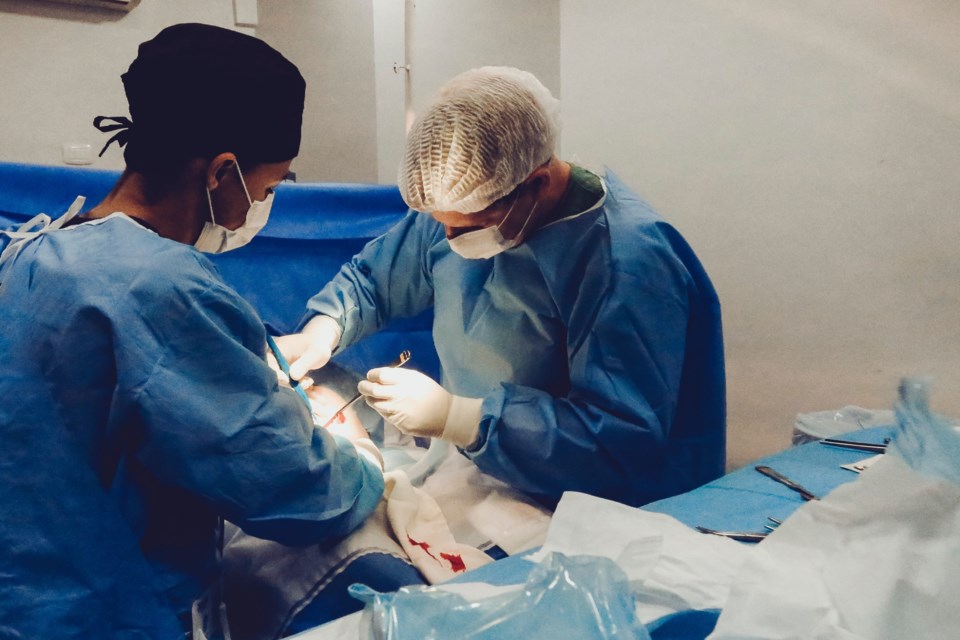Ontario hospitals, health professionals and the medical community need to be doing much more to fight climate change.
That was one of the key concerns raised Wednesday during an online news conference with the Ontario Medical Association.
Dr. David Ohrling, chief of anesthesiology at Collingwood General and Marine Hospital, said climate change is indeed an issue in the Canadian health-care system.
"Our health-care system in Canada, as mentioned, is responsible for approximately five per cent of our total greenhouse gas emissions, which is more than the airline industry. We're contributing to the climate crisis," said Ohrling.
He said the OMA has created an environmental sustainability working group that has focused on two distinct areas.
"The first is a reduction of the impact of anesthetic gasses, which are potent greenhouse gases," he said.
"The second involves addressing the current practice in our operating rooms of relying on single-use medical devices and supplies, which is both wasteful and has negative environmental impacts. The changes we're advocating for will have positive effects on our planet's health, and by extension patient health," Ohrling added.
He said one of the common gases used in anesthesia is called desflurane. Ohrling said it has a significantly larger carbon footprint than other gases and is more expensive to use. He said many Ontario hospitals are no longer using it. He said this includes Health Sciences North in Sudbury.
Nitrous oxide is the other anesthetic gas that is being scrutinized, said Ohrling. He said the concern is the leakage from supply systems and its persistence in the atmosphere, which he said can last as long as 100 years.
"Addressing anesthetic gasses is low hanging fruit, reducing our use of desflurane and wastage of nitrous oxide can reduce our carbon footprint and our health-care systems climate impacts," he said.
Ohrling said many hospitals and health-care professionals are alarmed at the level of single-use medical devices and equipment that is used once and then thrown away.
He said this adds to the problem of greenhouse gas emissions caused by the supply chain, not only in manufacturing but also in transportation.
"The supply chain or the stuff we use accounts for the majority of health care's greenhouse gas emissions; about two thirds by most estimations,” said Orhling.
“Operating rooms themselves are very resource intensive and generate 20 to 33 per cent of the hospital's total waste. Much of that waste consists of plastic products that are intended to be used only once and then discarded. In some cases, supplies are even discarded when not used, because they were unwrapped.”
He said it is time for medical suppliers to begin creating medical equipment that can be used over and over again, with proper cleaning and sterilization procedures.
When Ohrling was challenged on how to ensure that medical equipment can be made safe to use more than once, he said it could be done.
"You know, one of the rationales for shifting to single-use products has been safety over time; or the argument that single-use products are safer to use when that's actually never shown to be the case," said Ohrling.
"And most people would be well aware that if you're having major surgery, the surgical instruments that are being used for those operations are all reused. We have experts in our hospitals who do medical device reprocessing and sterilization. They have the tools and the equipment to properly and safely reprocess equipment," he added.
He said the medical community needs to redesign and rethink many of the medical devices so they can be reused. He said hospitals also need to put pressure on medical supply companies to create new products that can be used more than once.
Len Gillis covers mining and health care for Sudbury.com.



